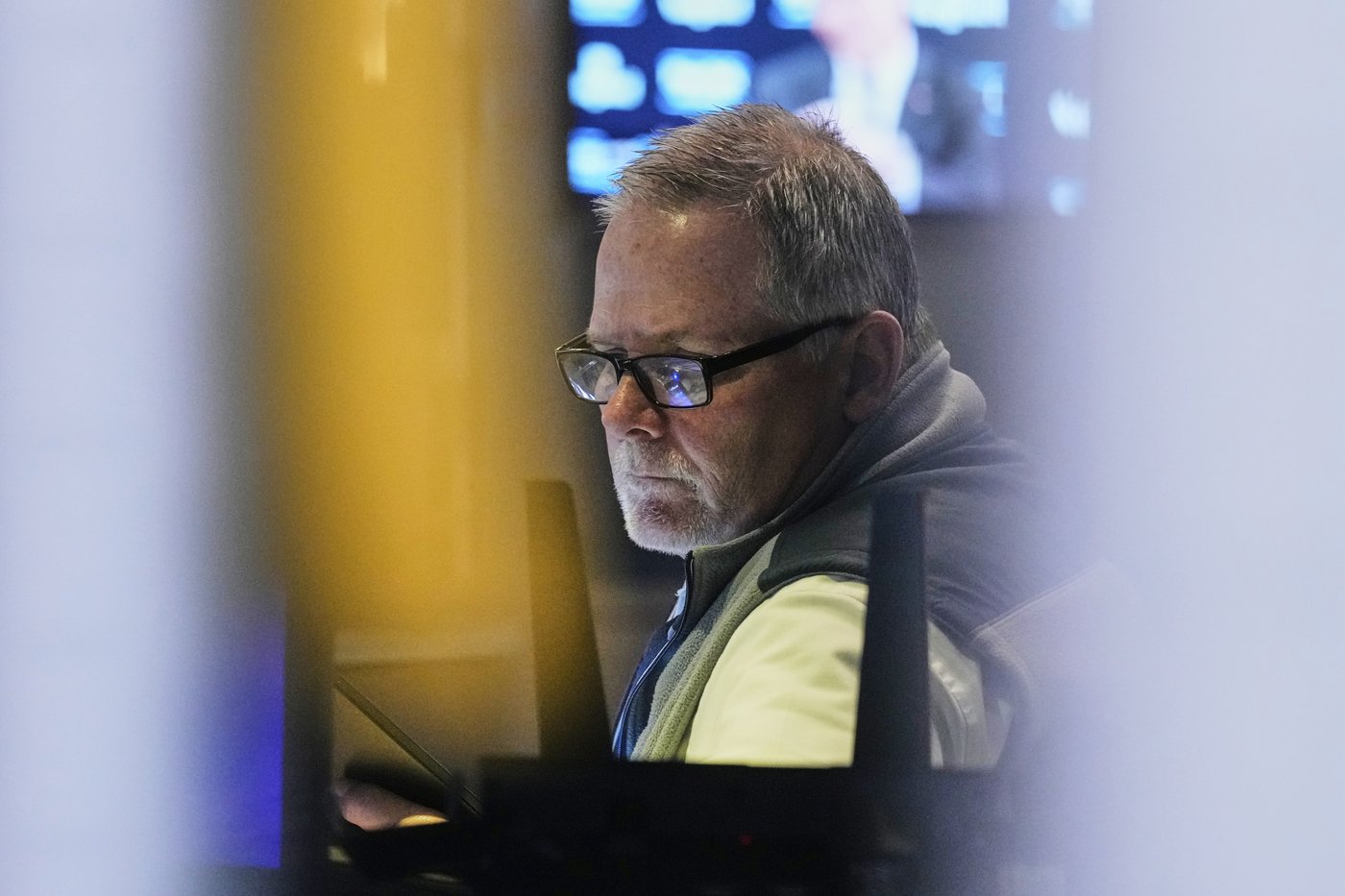Wall Street Plummets as Treasury Yields Surge and US Debt Fears Grow
NEW YORK (AP) — On Wednesday, Wall Street saw a downturn due to pressures from the bond market, with Treasury yields rising over concerns regarding the
U.S. government’s spiraling debt
and other concerns.
The S&P 500 dropped by 1.6%
second straight drop
Following the end of a six-day winning streak, the Dow Jones Industrial Average dropped by 816 points, representing a decline of 1.9%, whereas the Nasdaq composite fell by 1.4%.
Shares were initially only slightly down earlier today, following
Target
and other retailers gave mixed forecasts for upcoming profits amid uncertainty caused by
President Donald Trump’s tariff battle
The market subsequently plummeted following the release of the outcomes from the most recent U.S. government auction of 20-year bonds.

The government frequently issues these bonds as a means to borrow funds for covering its expenses. During this particular auction, the U.S. government needed to offer a yield up to 5.047% to entice sufficient investors willing to loan it a sum of $16 billion across two decades.
This led to increased yields across various Treasury securities, including the commonly tracked 10-year Treasury. The yield on this benchmark rose to 4.59%, up from 4.48% late Tuesday and from merely 4.01% at the beginning of last month. Such movement represents significant volatility within the bond market.
“Bonds seem to have caught equities’ notice,” says Jonathan Krinsky, chief market technician at BTIG, highlighting specifically the 30-year Treasury yield, which surged past 5% again and neared its peak value since 2023.
Treasury yields have been increasing partly due to
concerns
that
tax reductions presently being considered
In Washington, adding trillions of additional dollars to the U.S. government’s debt is a possibility. There are ongoing worries about how Trump’s tariffs might increase inflation in the country as well.
U.S. government bonds are not isolated; yields have increased globally for developed nations lately. This trend can be attributed partially to these countries’ administrations increasing borrowing to cover expenses, even as central banks such as the Federal Reserve reduce their purchases of government debt.
If the US government needs to offer higher interest rates to attract lenders, this could lead to increased borrowing costs for American families and companies as well, affecting areas like home loans, car financing, and credit card debt. This may ultimately hinder economic growth. Additionally, elevated yield levels might discourage investors from paying premium amounts for shares and various investment assets.
Last week, Moody’s Ratings was the final among the big three credit rating firms to lower the U.S. government’s credit assessment due to worries about potentially unsustainably high levels of debt.
We don’t believe that the downgrade is significant on its own,” noted Bank of America strategists in a BofA Global Research report, “however, it has acted as an awakening for investors who had previously overlooked the continuing fiscal debate.
On Wall Street, Target dropped 5.2% following the
retailer reported weaker profit
and higher revenues than analysts anticipated at the beginning of the year.
The firm mentioned experiencing difficulties due to customer boycotts. Early this year, it reduced numerous diversity, equity, and inclusion programs after facing criticism from the White House and conservative groups, leading to further opposition. Additionally, much to the concern of investors, Target revised downward its annual profit projection.
Carter’s, a retailer of clothing for infants and toddlers, dropped 12.6% following its decision to reduce the dividend.
CEO Doug Palladini stated that the company decided to act partly due to expected investments in the coming years and the potential for “significantly increased product expenses” resulting from the newly suggested tariffs on goods entering the United States.
In total, the S&P 500 declined by 95.85 points to close at 5,844.61. The Dow Jones Industrial Average decreased by 816.80 points to end at 41,860.44, while the Nasdaq Composite index slid by 270.07 points to finish at 18,872.64.
An increasing number of businesses have lately mentioned tariffs and economic uncertainties as concerns.
are making it challenging to predict what the coming year will entail.
Others, such as Walmart, have indicated they will.
have to raise prices
to offset Trump’s tariffs.
U.S. stocks had recently regained much of their significant declines from earlier in the year following actions taken by Trump.
delayed or rolled back
Many of these strict tariffs remain. Investors are optimistic that Trump might reduce the tariffs more consistently following new trade agreements with various nations.
In foreign stock markets, indices showed varied performance with predominantly small fluctuations throughout Europe and Asia.
The FTSE 100 in London increased by 0.1% following a report.
price increases in the UK
rose to its peak in over a year in April. The Nikkei 225 in Tokyo dropped by 0.6% following a report.
Japan’s exports have slowed
due to tariffs
___
AP Business Writers Matthew Ott and Elaine Kurtenbach contributed.
Stan Choe, The Associated Press